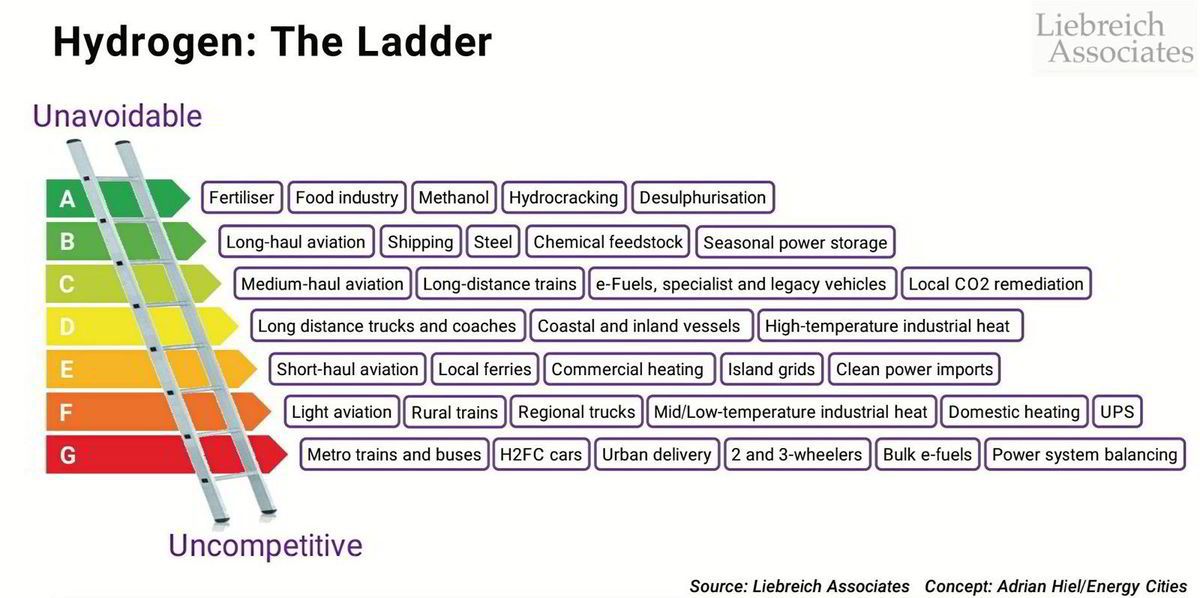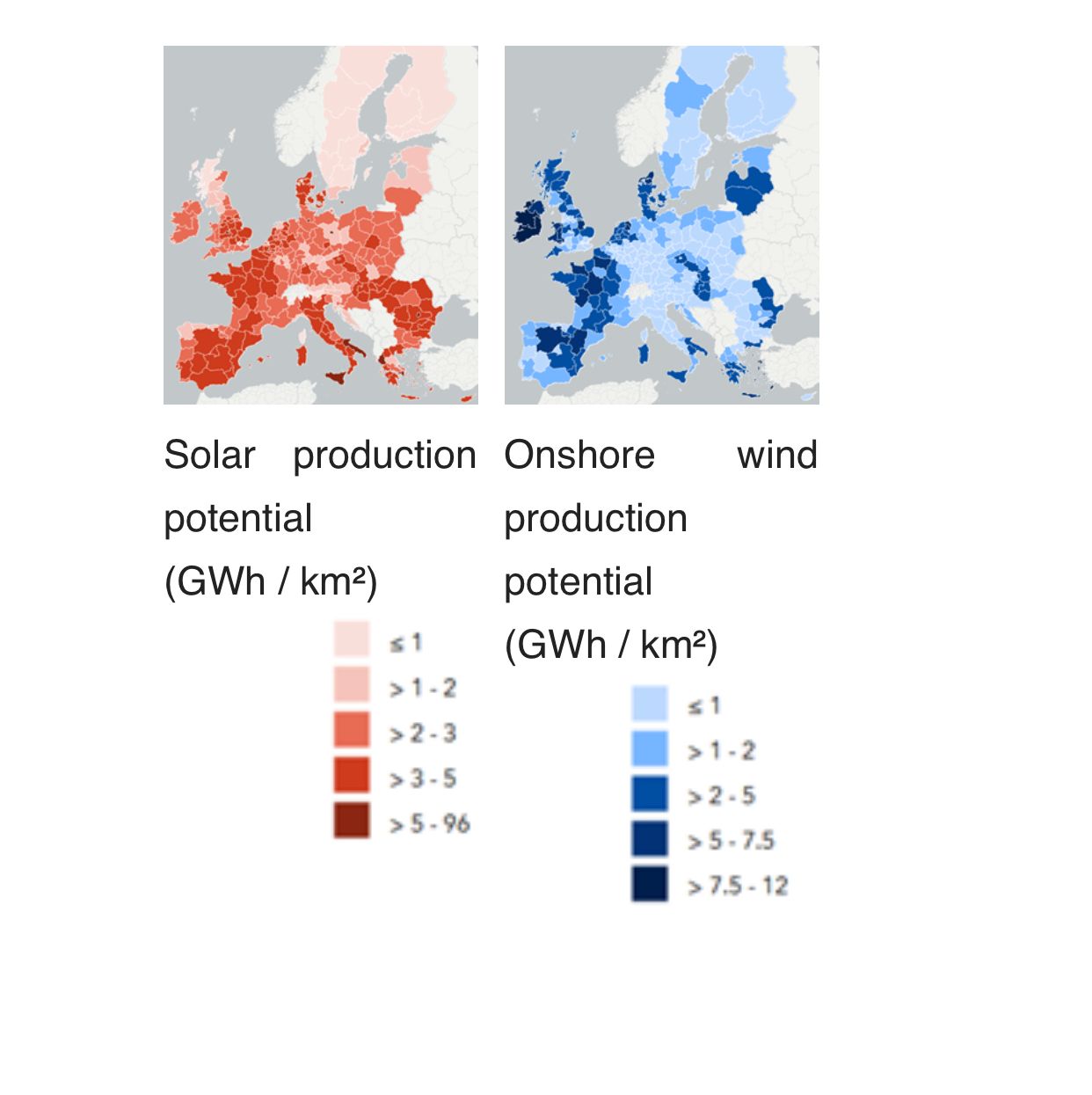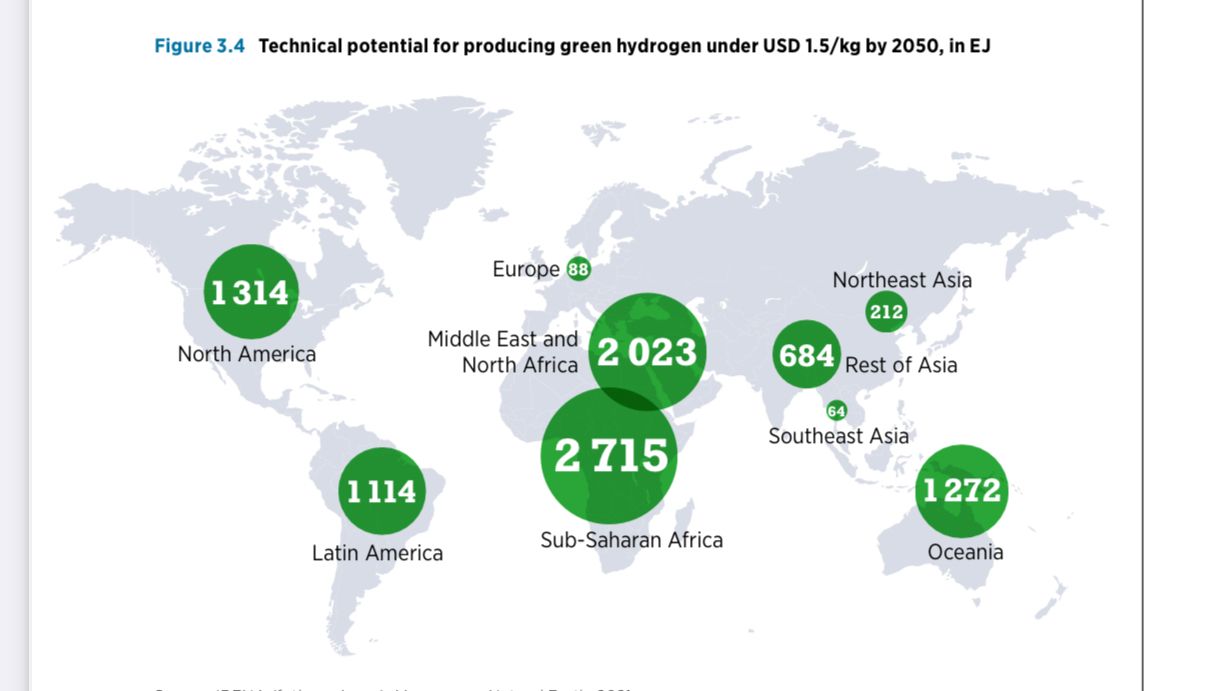The next two decades will see the emergence of a trillion-dollar hydrogen industry: watch Africa, Australia, the Americas and the Middle East, but it is Africa where the opportunity is especially significant.
There is a popular narrative doing the rounds that it is just too expensive to wage war on climate change. And, so continues the narrative, the regions most likely to be negatively impacted by net zero and other climate change mitigation measures are the regions that are already very poor. Take this excellent interview between Jordan Peterson and African entrepreneur Magate Wade. It is worth watching all the way through, but the section where Peterson and Wade discussed climate change sparked this article. If we were to stop all fossil fuels now, Wade says, "you have just signed the death warrant of 1.3 billion people, of them one billion black people." In other words, if Black Lives Matter and you believe in reducing carbon emissions in Africa, you are a hypocrite.
Well, Wade makes some fantastic points in this interview, but in this one respect, I disagree and for four reasons in ascending levels of importance
- Firstly, no one is talking about stopping all fossil fuels now — that is why we see net zero targets for 2050 or, in the case of China, 2060.
- Secondly, climate change will also claim lives and could create such social unrest globally that the results could be catastrophic.
- The costs of fighting climate change are massively exaggerated — indeed, a case could be made to say that falling renewables could create lower energy costs long-term.
- For Africa, an abundance in the conditions that are ideal for renewables creates an especially significant opportunity.
In addition to ideal conditions for renewables, Africa has one other major advantage — demographics. This decade will see the detonation of a democratic time bomb as baby boomers retire throughout the world. The ageing of populations in China, The Far East, Europe and North America and then towards the middle of this century in India will quite possibly be the most important economic development of the period — creating huge challenges, increasing the need for automation and migrant labour.
Africa, by contrast, is set to see its population rise rapidly — it could provide the labour for the world. That is quite the opportunity.
The combination of a rising population at a time of rapid ageing elsewhere and an abundance of wind, solar and biodiversity give Africa a unique opportunity to become a global economic powerhouse. However, climate change represents the biggest threat to realising this opportunity.
The hydrogen opportunity
And now to hydrogen. As the shift towards net zero gathers momentum, more attention will turn to hydrogen.
Hydrogen can be produced in multiple ways — brown hydrogen from coal, blue hydrogen from gas, pink hydrogen from nuclear and green hydrogen from renewables.
We want to move towards either green or pink hydrogen as soon as possible, but green hydrogen seems more realistic thanks to the cost of nuclear and the time scales in making new nuclear power plants.
But beware the hype
One of the more vocal people in the hydrogen domain and a critic of hydrogen hype is Michael Liebreich. For this article, he makes two points that are especially relevant.
Firstly, the cost of producing hydrogen and its practicality is such that many slated uses are not viable. But he does highlight a handful of applications for which the use of hydrogen is either unavoidable or close to being unavoidable.
Among these applications are fertilisers, long-haul aviation and steel.

This second relevant point that Michael Liebreich makes relates to the cost of transporting hydrogen— it is extremely high.
See this video where Michael Liebreich interviews Lord Adair Turner, who chairs the Energy Transitions Commission, for more detail .
This report from Philipp Jäger goes into detail on the costs of transporting hydrogen.
The cost of transporting hydrogen is such that there seem to be very powerful economic benefits of making the products that hydrogen is most suited to close the area where hydrogen production is most practical.
Philipp Jäger's report contains this chart highlighting Europe's solar and onshore wind potential.

It would appear that among the regions especially well placed in the central region of France and the Castile and Leon regions of Spain are relatively well positioned for both wind and solar.
The truth is, however, that Europe is not well placed for hydrogen — it will be reliant on transporting hydrogen, probably from North Africa and the Middle East, although this will be extremely expensive.
The Norwegian company Yara, which specialises in nitrogen-based mineral fertilisers, has a number of green ammonia projects in Norway and the Netherlands, but the big potential lies beyond Europe, and indeed Yara has a project in Australia.
But if you are interested in the areas of the globe where hydrogen potential is greatest, then this chart from Irena sums it all up well.

Africa wins hands-down, and Sub-Saharan Africa has even greater potential than North Africa.
As pages 33 and 34 of the Irena report show, Africa easily has the greatest potential for solar and vies with South America, the region to the north of Australia, for wind potential.
For Solar potential, Australia is just behind Africa.
There is a massive opportunity for Australia to harness the sun and generate hydrogen to then manufacture, say, green steel or fertiliser, but it is Africa, where a rapidly growing population creates a young labour force, where the significant opportunity where the great hydrogen-related industries are most likely to emerge.
Let's see what happens.






Related News
Saving money and the planet— not a bad brace.
Jan 15, 2024
Solar revolution is back on thanks to falling cost of polysilicon
Jan 10, 2023
Tech bubble! Are you kidding?
Jan 06, 2023